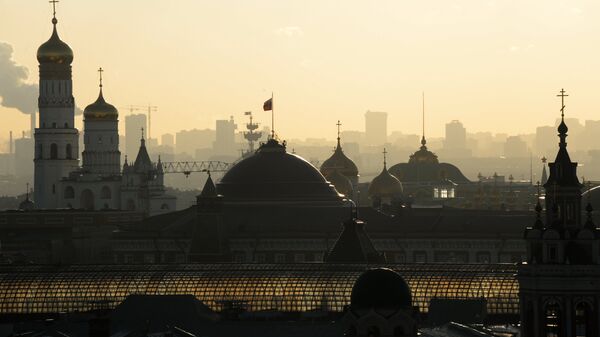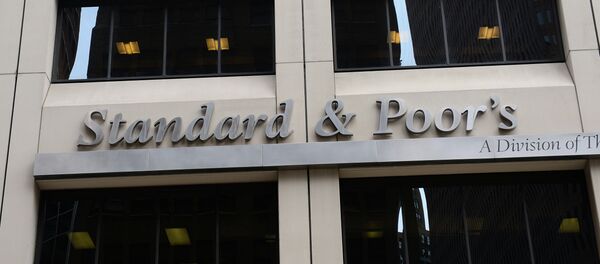This assessment contrasts starkly with those of New York-based Fitch Ratings and Moody’s Investors Service, that continue to maintain the rating of their home country at the highest level available — AAA, Stable — with only Standard&Poor's (S&P) ‘daring’ to downgrade it to AA+.
This situation predictably raises concerns that the credit ratings assigned by the Big Three – Moody’s, Fitch and S&P – are often politically biased, and that they may deliberately issue pessimistic forecasts regarding Russia's economy, in a veiled attempt to deter investors from considering the Russian market.
These concerns were echoed by Guan Jianzhong, the President and Chairman of the Board of Dagong Global Credit Rating, during a recent interview in St. Petersburg.
"Actually credit ratings are largely politically biased. Dagong is only considering the debt repayment capacity of the central government," Guan Jianzhong said.
Anna Koroleva, a financial analyst at the Russian magazine Expert, told Sputnik that credit ratings can indeed be politically biased, and explained how it usually happens.
"You can’t exactly say that these agencies are simply being told what to do; there is no direct political pressure involved. Nevertheless, credit rating agencies cater not just to the interests of domestic market, but, first and foremost, to those of large US and European investors. They take into account the factors that matter to large Western investors, which results in the aforementioned political bias, which is further exacerbated by the geopolitical situation and 'news background'," she said.
Koroleva pointed out that considering these factors, it is small wonder that many Western investors were spooked by the anti-Russian sanctions as they had to consider the risks of cooperating with Russia. However, their reluctance in turn created a great number of vacant niches in the Russian market, which did not escape the notice of investors from China and other Asian nations.
"As far as economic prospects are considered, no one denies that Russia is a huge country with tremendous possibilities, and that despite sanctions you can’t ignore a market like that. Even the large Western investors understand that. The representatives of the top economies of the world – Italian, German, French – continue to declare that their business circles are against the political restrictions imposed against Russia; and they’re enviously eying the Russian market, which some of them were forced to abandon. Meanwhile, those who came to the Russian market in their stead gain considerable advantage over the companies that will come or will return there later, after the sanctions are lifted," she remarked.
Guan Jianzhong also observed that the Western countries "use the credit rating as a tool to protect their own profits, their own interests," pointing out that the financial crisis of 2008 was partially caused by the inaccuracy of existing credit ratings – an assessment that Koroleva completely agreed with.
"There’s no doubt about it. This is exactly why, after the source of the crisis was contained, a large number of investigations into the activities of these very credit rating agencies were launched in the West… And these investigations continue to this day. Such reputational risks cause the credit rating agencies to conceal their mistakes, and sometimes even to bear considerable expenses merely to avoid litigation," she said.
Dagong Global Credit Rating was established in 1994 and is not formally affiliated with the Chinese government. According to a statement posted on the agency’s website, Dagong started assigning sovereign ratings in 2010 in order to put an end to the US credit rating agencies’ monopoly.
The company currently intends to cooperate with Russia’s new national credit rating agency, and is preparing to open a subsidiary in the country.


